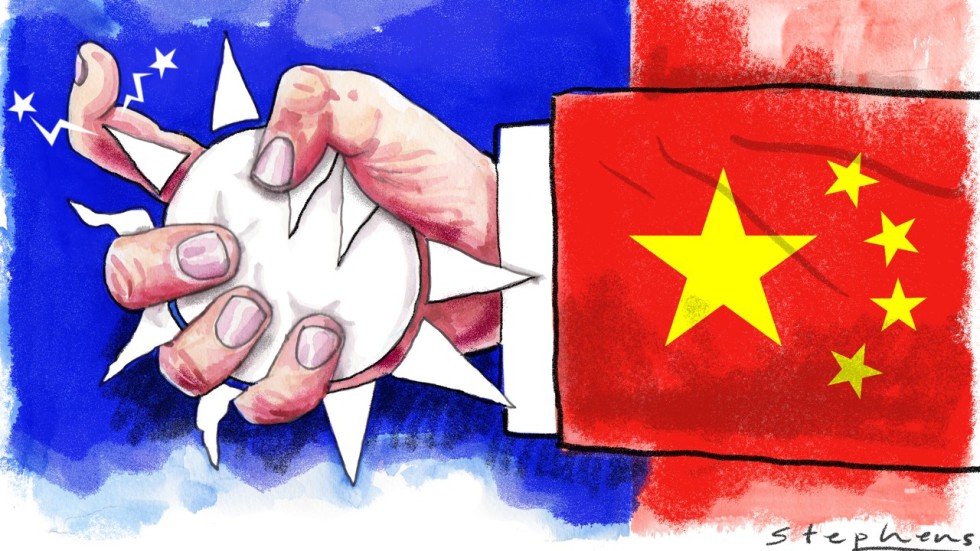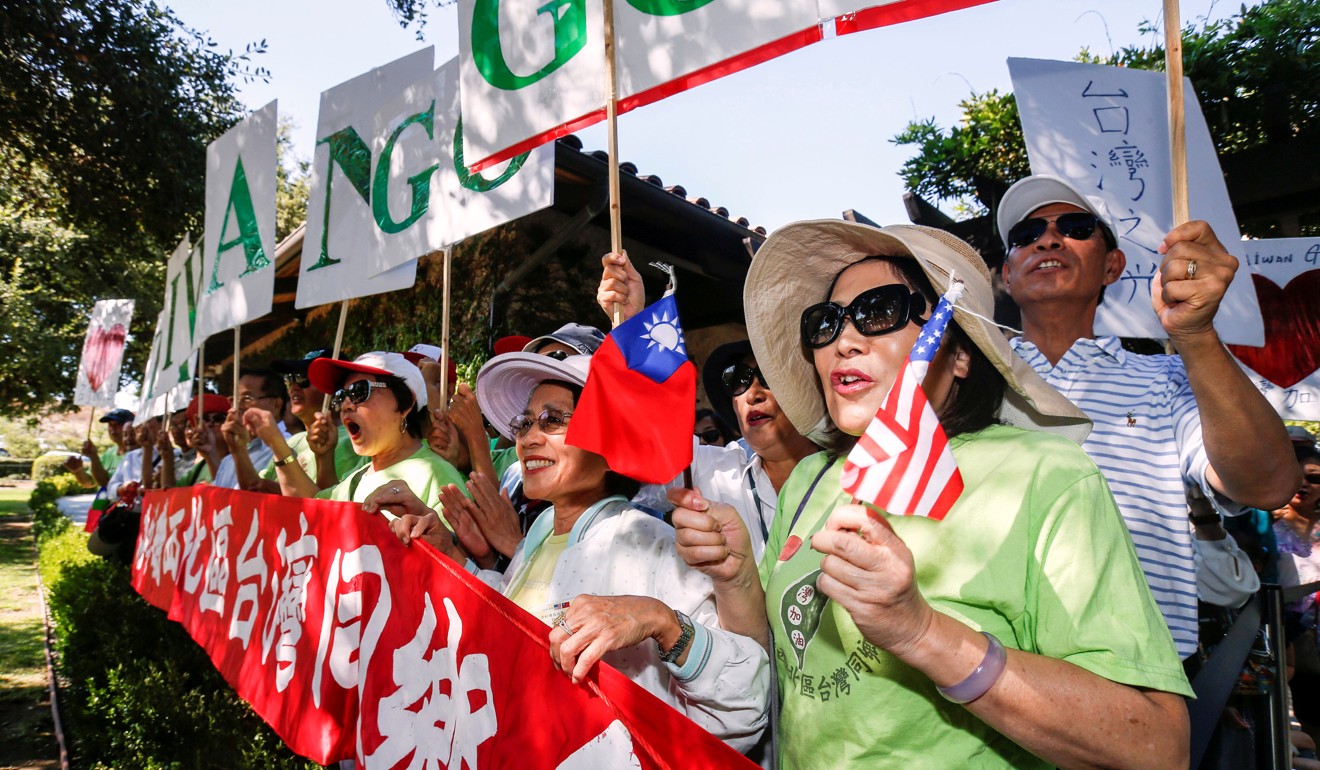 It was also to be expected because Beijing insisted on a condition that the DPP and President Tsai Ing-wen could not possibly entertain: to declare that Taiwan is part of the People’s Republic of China. What was uncertain in May 2016 was what punitive measures Beijing would put in place. Two years into Tsai’s presidency, the scope of Beijing’s moves against Taiwan has become more evident. Some were expected early on, for example, the exclusion of Taiwan from the World Health Organisation’s annual World Health Assembly or restricting tourists going to Taiwan. Increased activity by the People’s Liberation Armyin the Taiwan Strait and around Taiwan belongs to the same category. Other measures were less expected. In the second half of 2017, Chinese authorities began to demand that foreign corporations start to treat Taiwan explicitly as part of China.
It was also to be expected because Beijing insisted on a condition that the DPP and President Tsai Ing-wen could not possibly entertain: to declare that Taiwan is part of the People’s Republic of China. What was uncertain in May 2016 was what punitive measures Beijing would put in place. Two years into Tsai’s presidency, the scope of Beijing’s moves against Taiwan has become more evident. Some were expected early on, for example, the exclusion of Taiwan from the World Health Organisation’s annual World Health Assembly or restricting tourists going to Taiwan. Increased activity by the People’s Liberation Armyin the Taiwan Strait and around Taiwan belongs to the same category. Other measures were less expected. In the second half of 2017, Chinese authorities began to demand that foreign corporations start to treat Taiwan explicitly as part of China.
For fear of losing access to the Chinese market, international companies complied. British Airways, Austrian Airlines, Singapore Airlines and scores of others now list Taipei with various forms of connection to China instead of “Taipei, Taiwan”.
The only airlines that did not fully comply were from the United States and Japan, removing references to Taiwan but not including a reference to China.
However, Beijing’s push to punish Taiwanese voters for their choices is perhaps best represented by enticing Taiwan’s “diplomatic allies” to switch recognition to Beijing. A promise of large financial donations and investment that Taiwan could not match, or is not willing to match, is typically part of the deal.
Five “diplomatic allies” have changed sides since Tsai became president: Sao Tome and Principe in 2016, Panama in 2017, and the Dominican Republic, Burkina Faso and El Salvador in 2018. Only 16 countries plus the Holy See now recognise Taiwan under its formal name: the Republic of China.
On the face of it, Beijing’s campaign seems to have been successful. Taiwan is not attending international events, global corporations do Beijing’s bidding on sovereignty issues and the loss of diplomatic relations seemingly isolates Taiwan. Moreover, Taiwan does not have the capacity or will to respond in kind. However, Beijing’s campaign against Taiwan comes with consequences.
El Salvador breaks ties with Taiwan and shifts to Beijing
Chief among them is the brewing backlash in the US, most recently expressed by the strong reaction from the White House to El Salvador’s switch last week, reminiscent of its calling a push against global airlines an “Orwellian nonsense” earlier this year.
In the wake of El Salvador’s decision to establish diplomatic relations with Beijing, US Senator Cory Gardner announced his intent to introduce a bill that would encourage other countries to maintain official and unofficial relations with Taiwan, and introduce measures that the State Department could take against those countries that switch recognition or engage in otherwise adversarial actions affecting Taiwan.
If 2018 is the year when Beijing’s pressure on Taiwan intensified, it is also a year of the strengthening of the US-Taiwan partnership, including through pro-Taiwan provisionsin the 2018 National Defence Authorisation Act; the Taiwan Travel Act encouraging high-level visits; the White House’s statements on Beijing’s pressure against airlines and El Salvador’s recognition switch; and, the treatment of Tsai as the head of a sovereign state during her recent visit to the US.
What should worry Beijing, even more, is that US resistance to China has broad bipartisan support, particularly in the national security and foreign policy establishment. The relatively dovish attitude towards Beijing during the two presidential terms of Barack Obama was predicated on the condition that restraint on Taiwan’s side must be complemented by restraint on Beijing’s side.
Chinese leaders, diplomats and state-owned media may argue that Tsai’s administration is the problem, but observers in and out of Washington do not see it that way. Tsai’s moderate approach has earned her praise in the US, even if her low-key attitude on the issue of formal independence for Taiwan has earned her critics at home.

In the eyes of the establishment in Washington, Beijing has forfeited the goodwill granted to it by the US, and it is a high time to react accordingly. It is not certain that US actions will deter Beijing from trying to restrict Taiwan’s diplomatic relations, but they will surely give the remaining 17 “diplomatic allies” good reason to think twice.
Ultimately, China’s does not have to care much about what the US would do if it made Taiwan accept Beijing’s demands. It is a long-standing US policy to oppose the use of force by China to take Taiwan. However, it is also a US policy not to oppose political settlement between Taiwan and China if it respects the wishes of the people of Taiwan.
The problem for Beijing is that neither of the measures has so far produced the results it hopes for. The drop in Chinese tourists has been compensated for by an increase in inbound tourism from elsewhere, particularly from Southeast Asia. Forcing global companies to accept Beijing’s demands only alienates Taiwanese voters and makes Beijing look petty. Restricting diplomatic relations is not putting Tsai under greater domestic pressure.
US unveils de facto embassy in Taiwan in June
To make matters worse, some actions are just counterproductive. One recent example is the decision to take away the right of Taichung to host the East Asian Youth Games. Acting on Beijing’s request, the East Asian Olympic Committee made the unusual decision in late July. Following the ruling, the incumbent mayor of Taichung, Lin Chia-lung of the DPP, received a significant bump in polls in his race for re-election this November.
The numbers went down to the long-term normal in the following weeks, and the race is very close, giving the Kuomintang a chance to rule the second-largest city in Taiwan again after four years, but the case shows how heavy-handed Beijing’s approach could be.
Beijing will undoubtedly consider Taiwan’s municipal elections in November a litmus test. If the DPP suffers significant electoral losses, it would validate Beijing’s current approach.
It is no secret that Beijing would prefer to have the KMT, the party still officially committed to unification, in charge in Taiwan. Forthcoming elections are not going to be a vote on foreign policy issues, but creating momentum for the KMT could help carry the party towards national elections in January 2020.
Beijing’s problem is that, while the DPP government is not very popular, the opposition is not capitalising on it and the polls for November do not indicate significant gains for the KMT. Now, with the US more willing to confront Beijing, perhaps it is a time for Beijing to rethink its counterproductive approach to Taiwan.
No comments:
Post a Comment